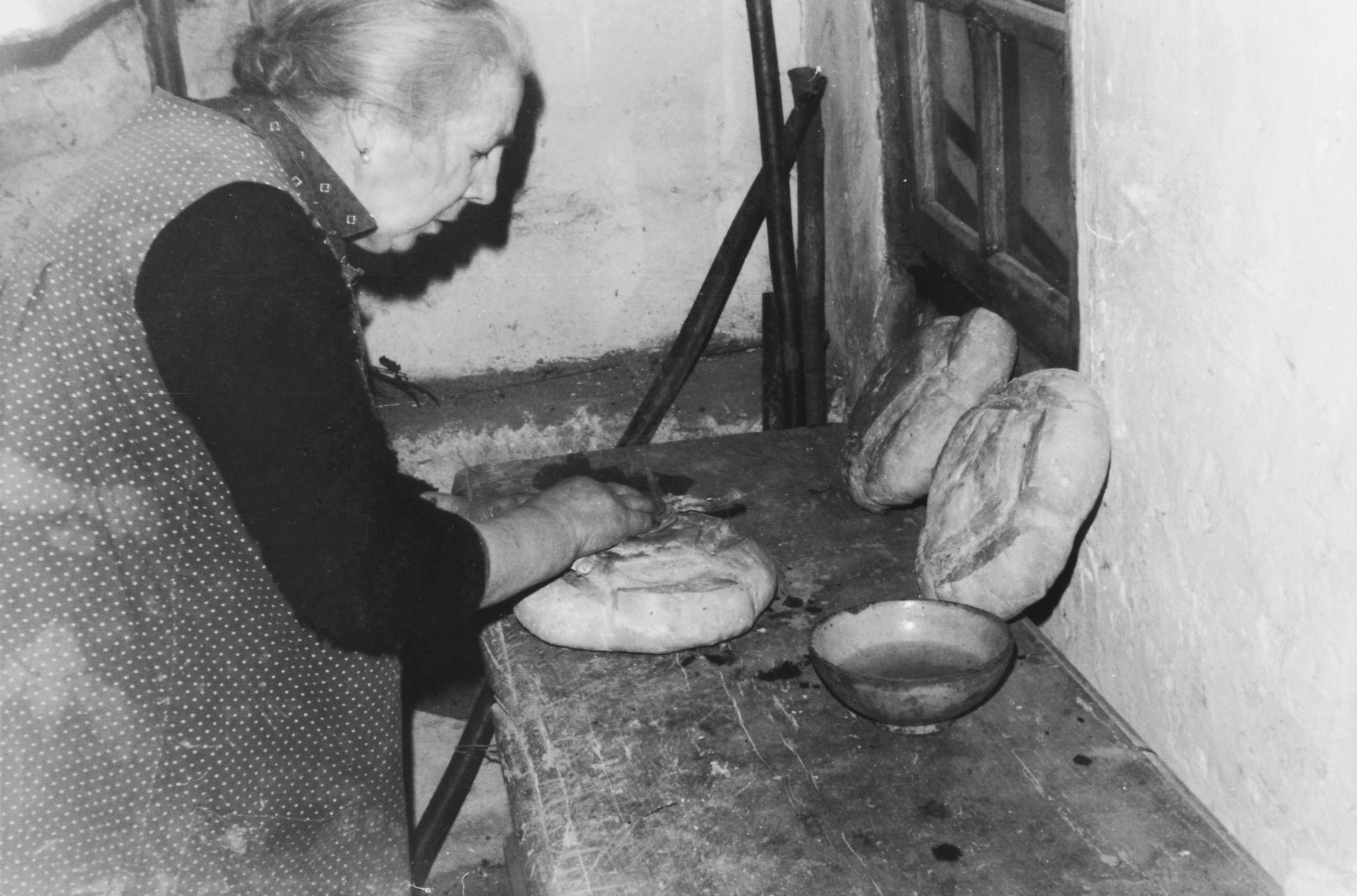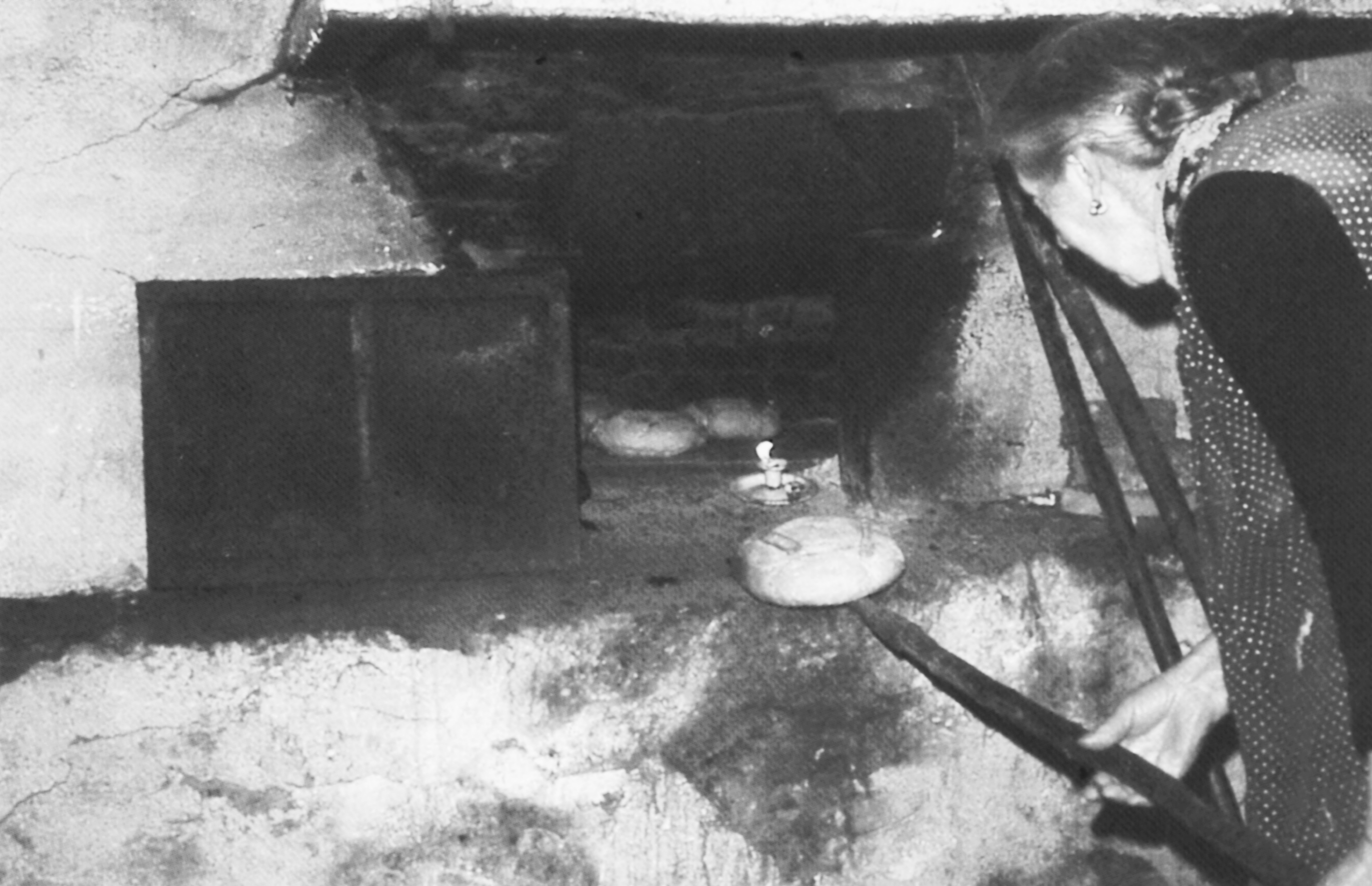Basque ethnography at a glance
We buy and sell goods or provide and receive services by exchanging money. We do it every day. Trade and service delivery are part of the consumer society we live in and an essential driver for economic development.
In the traditional world, and particularly in rural areas where once in the past monetary transactions hardly ever occurred, bartering and provision of assistance among neighbours and relatives was customary. Human relationships were built upon mutual give and take.
The exchange of bread is simply one instance of the benefits of helping and being helped. Each family baked their bread in personal or communal wood-fire ovens, enough bread to last for several days, usually a week, and depending on family size, even a fortnight. The type of flour used, the method for mixing and kneading the dough, the shape of the loaves and the way they were stored ensured edible bread for days. Whenever a batch was made, a few loaves were shared among the closest neighbours. Shortly thereafter someone would reciprocate with a newly baked loaf, and soon someone else, and yet someone else, so the household could eat fresh bread nearly every day despite the long period between batches.
Bartering and other mechanisms for solidarity did not only happen between neighbours. The all for one and one for all mentality of times past had a strong intergenerational component. Each generation was well conscious of the values and properties inherited from their ancestors, such as the family house, farmland, grassland and woods, and remained committed to preserve their legacy, and increase it if possible, for the well-being of future generations. In the Carranza Valley (Bizkaia) where I come from, a deep debt of gratitude to our forebears and the acceptance such assets may only be enjoyed in exchange for their preservation, for they are handed down through the years from one generation to the next, are reflected in an old saying that goes: La vida es un pan prestado (We are not the masters of our own lives). In other words, the gift of life has been granted to us, and we owe it to our descendants.
Luis Manuel Peña – Ethnography Department – Labayru Fundazioa
Translated by Jaione Bilbao – Language Department – Labayru Fundazioa
Reference for further information: Family Diet, part of the Ethnographic Atlas of the Basque Country collection.



